Interview: Gezim Myshketa on "Guillaume Tell"
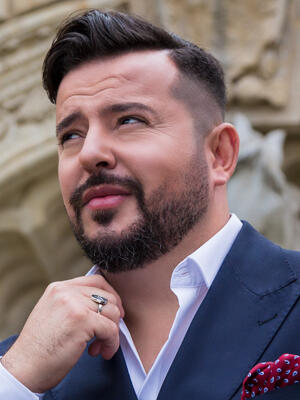 ―You first appeared at the New National Theatre Tokyo (NNTT) in La Traviata in 2022. Eri Nakamura sang Violetta, and you played a deeply caring Germont which was very memorable.
―You first appeared at the New National Theatre Tokyo (NNTT) in La Traviata in 2022. Eri Nakamura sang Violetta, and you played a deeply caring Germont which was very memorable.
Thank you very much. At the time, there were still strict Covid-19 restrictions in place, and it was a difficult time for us. However, thanks to everyone at the NNTT who did their utmost best to realise the production, that Traviata became a memorable and cherished experience for me. I also felt the audience's passion for the arts and culture. This may sound exaggerated, but it's not flattery. It was a truly unforgettable experience.
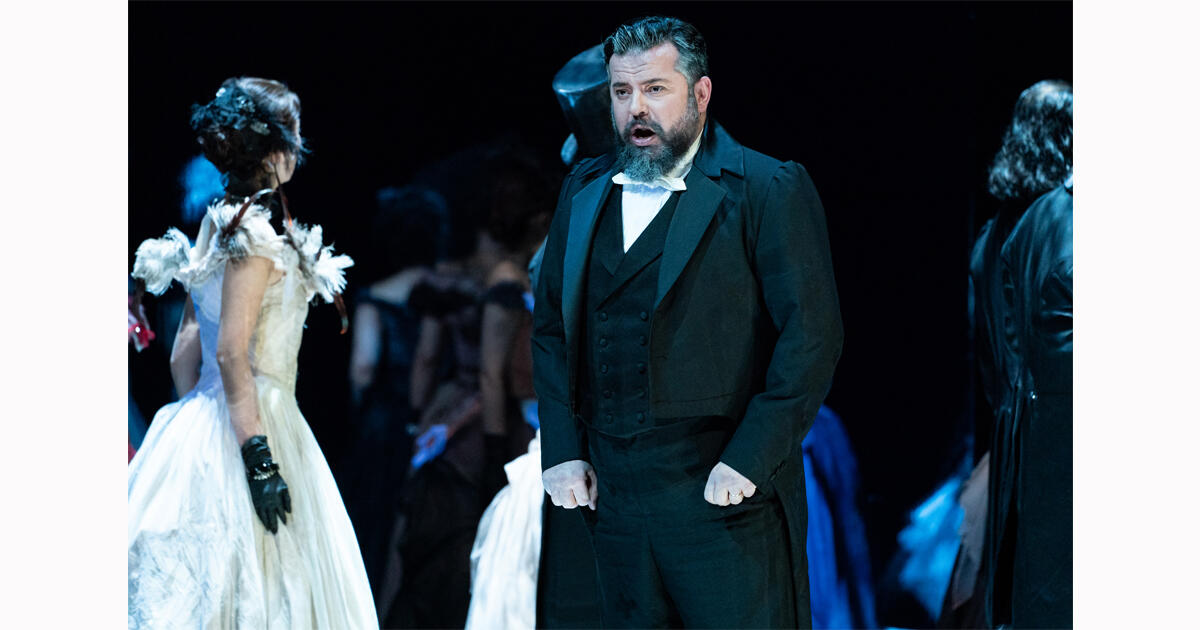
La Traviata(2022)
―You are originally from Albania, and you studied singing in Italy.
I was born in Durrës in Albania. There is a musical tradition in the family; my father is a musician, and many of my relatives are singers or instrumentalists. So I have been familiar with music from an early age, particularly opera. At the age of twelve, I entered the local music academy and studied singing and music. Subsequently, I decided I wanted to become a professional singer and studied at the Music Conservatory in Parma, Italy. At first, I was a light-voiced tenor, but my teacher Giuliano Ciannella, the legendary tenor, told me that I was a dark-voiced baritone or bass-baritone, so I began studying as a baritone. In 2006 I won the AsLiCo Competition, and I appeared in Don Giovanni, which opened the door to a career as a professional singer.
―In recent years, you are particularly in demand in Europe as a Verdi baritone. You've sung the title roles of Macbeth and Rigoletto amongst others.
Verdi's operas are important repertory for me. In addition to the roles you've just mentioned, I've sung roles in Simon Boccanegra and Luisa Miller, and soon I will make my debut in the title role of Nabucco in Toulouse.
―For a baritone, the great buffa role of Rossini is Figaro in Il barbiere di Siviglia, and the great seria role is Guillaume Tell, which you are singing in Tokyo.
I am excited to sing the role of Guillaume Tell at the New National Theatre Tokyo, not least because it is conducted by the great maestro Kazushi Ono and directed by Yannis Kokkos whom I greatly respect. Olga Peretyatko, who sings Mathilde, is a good friend and a great interpreter of Rossini, and I have performed with René Barbera, who sings Arnold, in Bellini's I Puritani. I also look forward to sharing the stage with the Japanese cast.
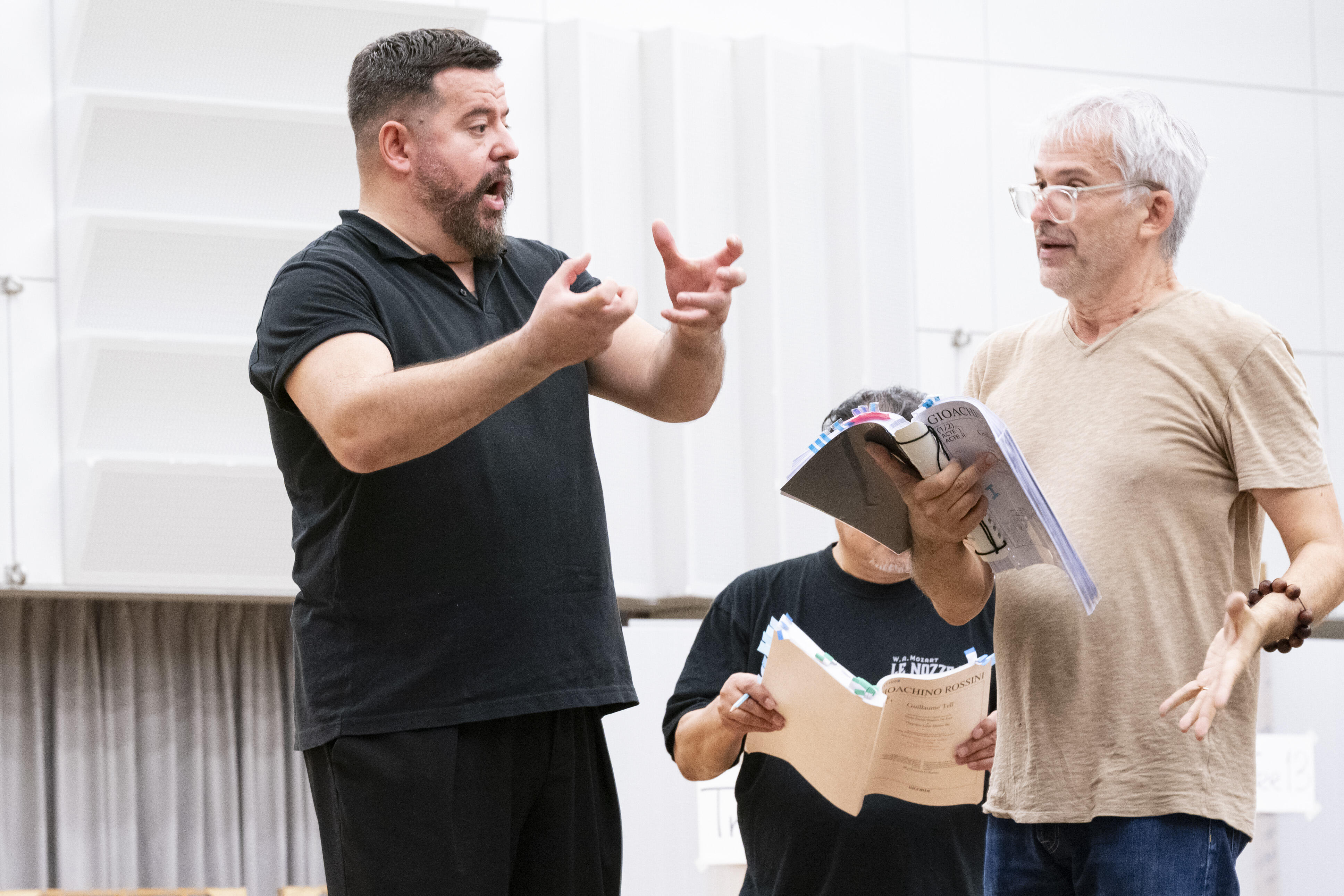
From the rehearsal of Guillaume Tell
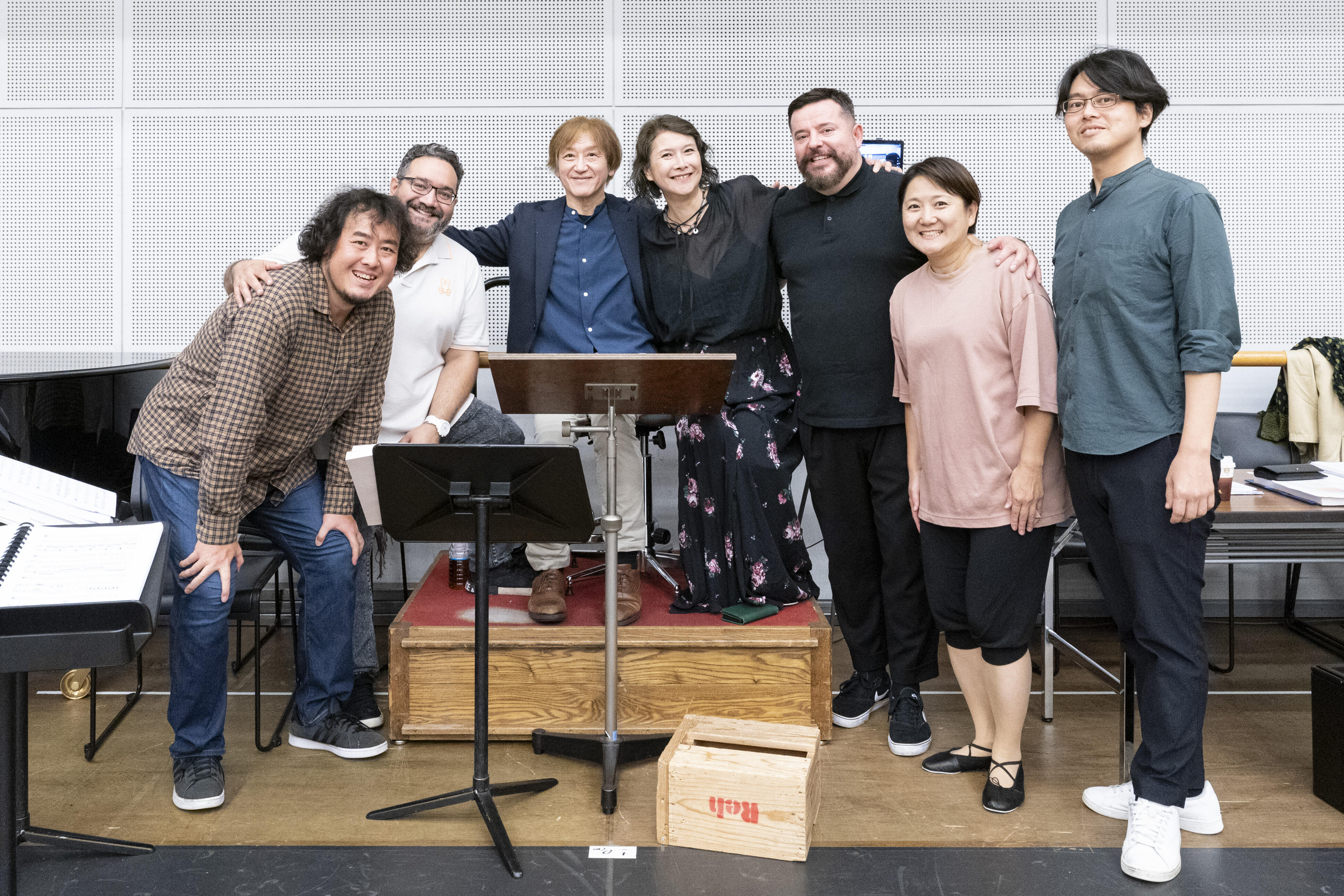
From the rehearsal of Guillaume Tell
―This production of Guillaume Tell is in the French version and it's very long. It must be a very difficult role for you. What should we listen out for?
It's certainly a demanding role. Pacing is essential, which requires practice, experience, skill and intellect. The finale of Act 4 of Guillaume Tell concludes with glorious music that anticipates Switzerland's future, and we have to tell the story with freshness and energy. Above all, it's important to play the role of Tell with empathy, and he must speak the truth, both musically and theatrically. Tell is a hero who tries to save the people from the tyrant, but he also suffers as a father. His conflict is expressed in the aria "Sois immobile" which he sings to his son, Jemmy, in that dramatic moment of the famous apple-shot. Of course there are other highlights in this opera, including the difficult but beautiful arias for the tenor, the soprano arias, and the rousing chorus.
―Are there any memorable performances or episodes from your career so far?
I've been an opera singer for twenty years, so of course I have many memories. One of the most unforgettable is when I made my debut at the Zürich Opera. It was the role of Fra Melitone in La forza del destino which I was asked to jump in at short notice. A day before the general rehearsal - the one before the open dress rehearsal with audience - I got a call from Maestro Fabio Luisi that they were looking for a baritone who can sing the role of Melitone and I accepted. At the time I was living in Bologna so I immediately got on a train to Milan and stayed the night, and planned to take the train to Zürich on the morning of the rehearsal. However, as I was on my way, I got another call and was informed that in this new production, directed by Andreas Homoki to open the season, Melitone had to sing the roles of the mayor and surgeon as well. In his staging, Melitone, Presiosilla, and Maestro Trabuco would appear on stage from time to time and play the other characters.
I had only sung Melitone in a traditional production in Italy before, and it's hard enough getting used to a modern production, but to sing two roles I've never sung before! It was really tough. I learnt the role as I walked, as I checked in at the hotel, as I washed my face, and on the train. Once I arrived at the opera house in Zürich, I had to learn my movements in about half an hour and then it was already the rehearsal! Normally I'm a quick learner, but that was the hardest thing I had to do in my life. Last minute jump-ins are part and parcel of an opera singer's life, but looking back, I can't believe how managed it. Still, I received a letter of thanks from Mr. Homoki after the premiere.
―How hair-raising! Hearing you in La Traviata last time, I knew you sing with great passion, but it's the clear-headedness that supports your singing too.
I don't know about being clear-headed, as I am quite a hothead by temperament. Being passionate in singing is not necessarily a bad thing, but when you are on the stage in an opera for a long time, the heart needs to be hot, but the head needs to be cool. After all we are humans, and we can't be on top form all the time. In order to achieve the best possible results at any given time, we need not only correct singing technique but also wisdom learned through experience.
―In addition to your busy schedule of opera appearances, I hear you are also involved in the training of the next generation in Albania.
Yes, I've started an academy for young opera singers in my hometown Durrës. We are calling for applicants from all over the world. I hope that in the future we can start a singing competition, because young people need more opportunities to become an opera singer. Just as people helped me along the way in the past, I would like to contribute to the next generation if I can.
―We are looking forward to your performance in Tokyo in Guillaume Tell. Do you have a message for the audience?
The Japanese people are one of the best audiences in the world. They listen to us quietly and intently, showing us great respect as artists. I am truly grateful and I want to give the best performance possible.
Interview by Inouchi Mika
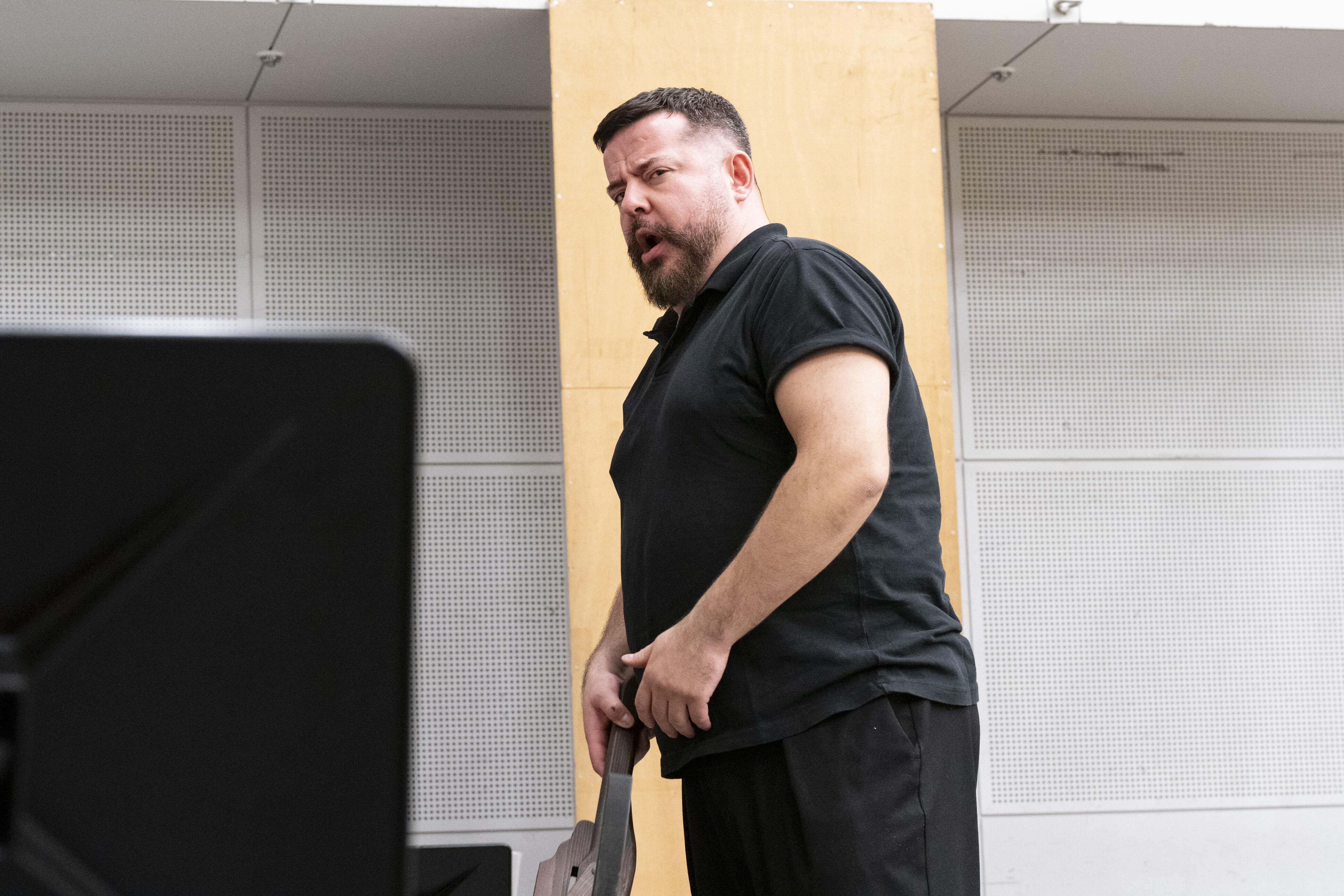
From the rehearsal of Guillaume Tell
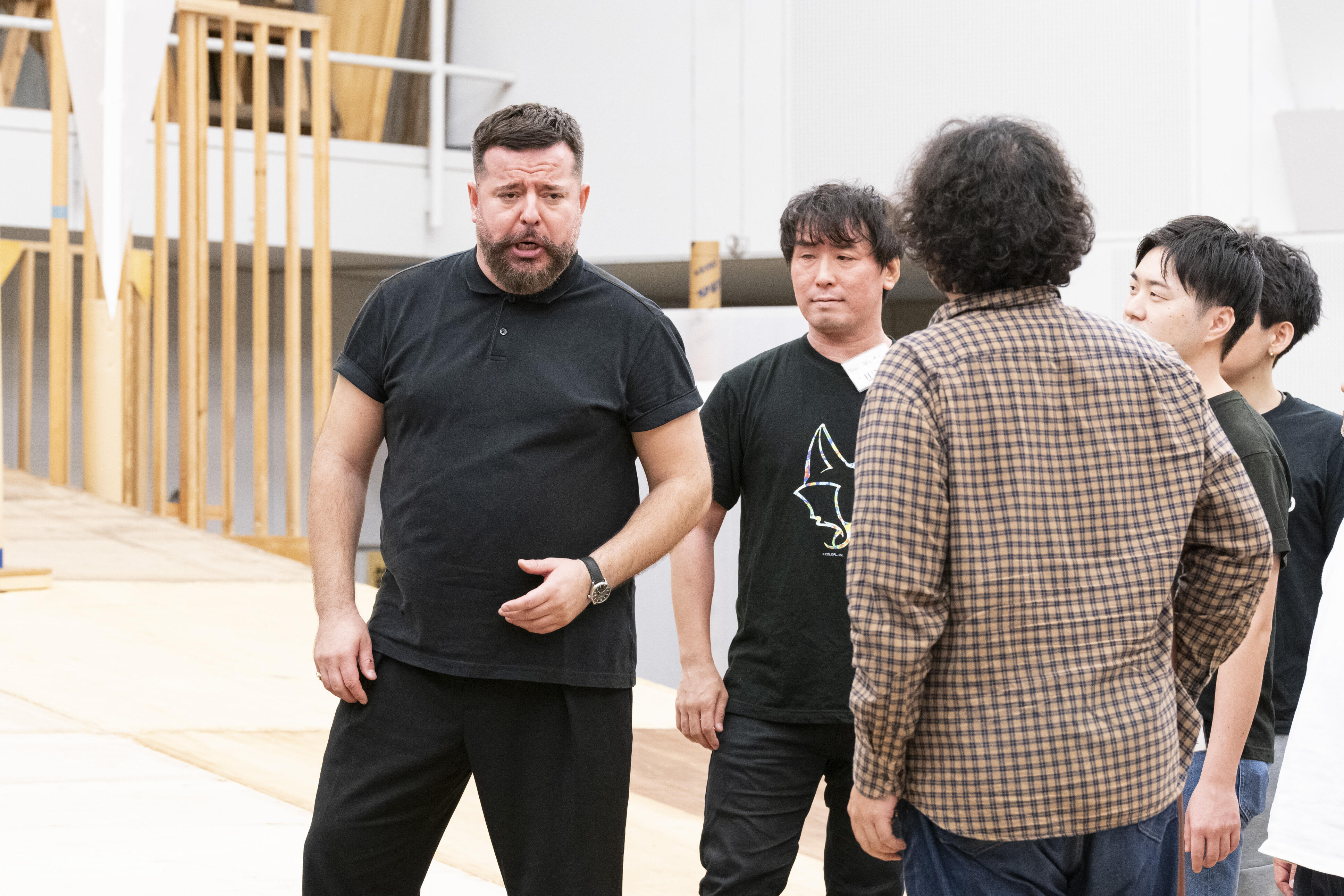
From the rehearsal of Guillaume Tell
Opera ❝Guillaume Tell❞
On Stage 20, 23, 26, 28, 30 November.
See here for more information.

